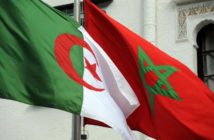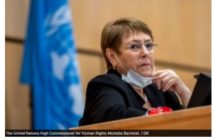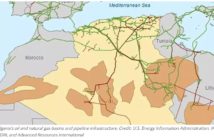Zawya
“The two countries could open in the future, the issue of maritime borders,” Medelci added during parliamentary session where the National People’s Assembly ratified a maritime border agreement with Tunisia.
Medelci also denied any conflict with Morocco over the land frontier. “The land border with that country is not facing any problems,” he noted.
However, the minister did not mention any possibility of opening the land border between the two countries, which has been closed since 1994.
Writers, intellectuals and civil society activists in both countries have increasingly called for opening the border to enable citizens of both countries to communicate and trade.
Medelci noted that Algeria would work on expanding the Tunisian agreement to include other countries, including Libya, Morocco, Spain and Italy. He also said that further negotiations between Algeria and Libya to demarcate land border would “kick off soon between the two countries’ officials”, adding he expected this file to be resolved in the future.
The foreign minister described the agreement signed with Tunisia as “an additional step to enhance relations between the two countries, consolidate fruitful co-operation and strengthen fraternity and good neighbourly relations”.
During the parliamentary session, MPs asked about measures taken by the government to secure the border in light of growing smuggling operations as well as terrorist and criminal groups’ activities.
MPs called for reviewing control measures of land borders with neighbouring countries that are witnessing security chaos.
“The smuggling and violations taking place on the eastern border have reached an unacceptable level,” said parliamentarian Filalli Ghouini of Islamist party Green Algeria Alliance.
The MP then questioned the measures that have been taken to deal with the challenges. He expressed his view that protecting the Algerian border with neighbouring countries requires updating agreements signed with these countries, as well as supporting them in solving their internal problems and realising social justice.
National Liberation Front (FLN) MP Suleiman Saadoui, an addressed another pressing problem now facing Algeria along its southern border: the large number of Malian refugees.
“Those can become part of other problems that Algeria doesn’t need,” he said.
Mokhtar Bougtuta, another FLN MP, also criticised the situation on the southern border with Sub-Saharan migrants. He claimed that “some of them have turned to illegal activities, such as forging documents and banknotes”.
Responding to questions on refugees, Medelci said Algeria was hosting them for humanitarian reasons on a temporary basis. However, he stressed the need “for those people to respect Algerian laws”.
National Republican Alliance (ANR) delegate Ammar Rajah urged the authorities to review the Libyan-Algerian land border file in view of the current security issues.
He also stressed the need to demarcate the border between the border towns of Illizi and Tamanrasset in the extreme south of the country, which he said were demarcated more than once without being effectively controlled. He also wondered about the possibility of providing new tools and mechanisms for securing the borders with neighbouring countries, and stressed the need to share information, especially security related, to avert the dangers of terrorist groups.
In his responses to the questions of parliamentarians, Medelci admitted to the difficult stage facing Algeria in view of deteriorating security in neighbouring countries.
However, he expressed optimism about the future of relations with those countries based on the agreements that have been signed and those expected to be signed in the future.
Responding to a demand about controlling the Libyan-Algerian land border, he said that “new negotiations would be held with the Libyan side to resolve this file”.
As to smuggling, the chief Algerian diplomat noted that there were agencies working to combat the phenomenon and that they were making great efforts to protect the national economy.






